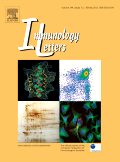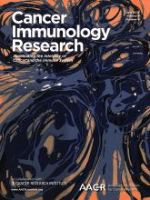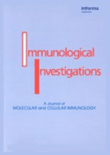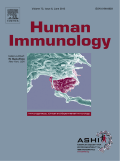
ImmunoTargets and Therapy
Scope & Guideline
Unlocking the Future of Immune Health
Introduction
Aims and Scopes
- Immunotherapy and Cancer Treatment:
The journal focuses extensively on various immunotherapeutic approaches, including immune checkpoint inhibitors, CAR-T cell therapies, and novel immunotherapies for different types of cancers such as non-small cell lung cancer, hepatocellular carcinoma, and multiple myeloma. - Autoimmunity and Inflammatory Diseases:
Research on the pathophysiology and treatment strategies for autoimmune diseases, including systemic lupus erythematosus, rheumatoid arthritis, and eosinophilic esophagitis, is a significant scope of the journal. - Infectious Diseases and Immune Response:
The journal publishes studies on the immune response to infectious diseases, including tuberculosis and viral infections, highlighting the role of immune targets in treatment and prevention. - Emerging Biomarkers and Therapeutic Targets:
The identification and characterization of biomarkers and therapeutic targets across various diseases are central to the journal's mission, providing insights into personalized medicine and targeted therapies. - Research Methodologies in Immunology:
The journal supports diverse research methodologies, including clinical trials, retrospective studies, single-cell transcriptomics, and bioinformatics, to advance the understanding of immune mechanisms and therapeutic strategies.
Trending and Emerging
- Combination Therapies in Cancer Treatment:
There is a growing trend towards exploring combination therapies, particularly those involving immune checkpoint inhibitors and targeted therapies, which are increasingly recognized for their potential to enhance treatment efficacy. - Personalized Medicine and Biomarker Discovery:
Emerging themes include the identification of biomarkers that can predict treatment response, facilitating a move towards personalized medicine in immunotherapy, particularly in oncology. - Research on the Microbiome and Immune Interactions:
Studies exploring the relationship between the microbiome and immune responses are gaining traction, indicating a new frontier in understanding how microbiota can influence immunotherapy outcomes. - Innovative Approaches to Autoimmune Diseases:
The journal is increasingly publishing research on novel approaches to treating autoimmune diseases, including the use of biologics and targeted therapies that address specific immune pathways. - Advances in Gene Therapy and Immune Modulation:
Gene therapy strategies, particularly those aimed at immune modulation, are emerging as a significant focus, reflecting advancements in genetic engineering and its applications in immunotherapy.
Declining or Waning
- Traditional Pharmacotherapy for Autoimmune Diseases:
There is a noticeable decrease in publications focusing solely on traditional pharmacological treatments for autoimmune diseases, as the field shifts towards more innovative immunotherapy approaches. - Basic Immunology without Therapeutic Context:
The journal has seen a decline in studies that address basic immunological concepts without direct application to therapeutic interventions, reflecting a preference for research that links basic science to clinical outcomes. - Generalized Discussions on Allergies:
Research related to generalized allergy discussions, such as those not tied to specific therapeutic targets or novel treatments, appears to be waning, as the focus has shifted towards targeted immunotherapies. - Longitudinal Studies in Rare Diseases:
There is a reduced emphasis on longitudinal studies in rare autoimmune diseases, as the journal seems to prioritize studies with broader implications or more common conditions. - Generic Reviews of Established Treatments:
The frequency of generic reviews on established treatments without new insights or advances has decreased, as the journal encourages more innovative and research-driven articles.
Similar Journals

Immunotherapy
Connecting Researchers to the Frontiers of ImmunotherapyImmunotherapy, published by Future Medicine Ltd, is a leading journal focused on the evolving field of immunotherapy within the realms of immunology, oncology, and allergy. With an ISSN of 1750-743X and an E-ISSN of 1750-7448, this academic journal has been at the forefront of groundbreaking research since 2009, and continues to illuminating insights in a landscape critical for the development of innovative therapeutic strategies through 2024. Positioned within Q2 and Q3 quartiles in various relevant categories, the journal ranks commendably in Scopus metrics, exhibiting robust engagement and relevance in Oncology and Immunology. It serves as an essential resource for researchers, clinicians, and students eager to stay abreast of advancements in immunotherapy, while also providing an open platform for sharing impactful studies. By disseminating high-quality research, Immunotherapy fosters a global dialogue among professionals and contributes significantly to the scientific community's collective knowledge on the increasing role of immune-based therapies in disease management.

IMMUNOLOGY LETTERS
Pioneering Research in Immunity and AllergyIMMUOLOGY LETTERS, published by Elsevier, is a distinguished journal in the field of immunology, focusing on the latest advancements and findings that significantly influence immunological research and clinical applications. Established in 1979, the journal has evolved to cater to a global readership, featuring high-quality peer-reviewed articles across a diverse spectrum of topics related to immunity and allergic responses. With an impressive Q2 category ranking in both Immunology and Allergy as of 2023, it holds a strong position within the scientific community, evidenced by its commendable Scopus rankings (Rank #71/233 in Medicine - Immunology and Allergy and Rank #85/236 in Immunology and Microbiology - Immunology). While primarily subscription-based, the journal aims to foster knowledge dissemination that encourages collaboration among researchers and practitioners alike, making significant contributions to the understanding of immune mechanisms. The journal is integral for educators, students, and professionals aiming to stay abreast of current trends and breakthroughs in the immune system's intricate functions.

IMMUNOBIOLOGY
Connecting researchers to revolutionize the understanding of immune systems.IMMUNOBIOLOGY is a prestigious academic journal published by Elsevier GmbH that significantly contributes to the fields of hematology and immunology. With its ISSN 0171-2985 and E-ISSN 1878-3279, this journal has been disseminating impactful research since 1979, positioning itself at the forefront of immunological and hematological advances. The journal holds a commendable ranking of Q2 in Hematology and Q3 in both Immunology and Immunology and Allergy, indicating its relevance and influence within the scientific community, as reflected by its Scopus rankings. Although IMMUNOBIOLOGY operates under a subscription model, it remains dedicated to expanding knowledge across disciplines, fostering innovative research, and facilitating connections among researchers, professionals, and students. Situated in Munich, Germany, this journal is continually evolving and aims to remain an essential resource for the latest discoveries and insights in the realms of immunity and blood disorders, ultimately enhancing our understanding of complex biological systems.

Immunotherapy Advances
Advancing the frontier of immunology with cutting-edge research.Immunotherapy Advances, published by Oxford University Press, stands at the forefront of the rapidly evolving field of immunology and microbe interactions, focusing specifically on novel immunotherapeutic strategies and their clinical applications. Established in 2021, this peer-reviewed journal aims to disseminate high-quality research that contributes to the understanding and advancement of immunotherapeutic techniques, potentially transforming patient care in immunology. With a current Scopus rank of #140 out of 236 in the realm of Immunology, placing it in the 40th percentile, Immunotherapy Advances is positioned to be an integral resource for researchers, healthcare professionals, and students eager to stay updated with groundbreaking findings and methodologies. The journal is dedicated to fostering innovative discussions and collaborations, ensuring open access to vital research that influences treatment paradigms globally.

Cancer Immunology Research
Unraveling the Immune Response in CancerCancer Immunology Research is a leading journal dedicated to the rapidly evolving field of cancer immunology, published by the American Association for Cancer Research. Established in 2013, this prestigious journal has quickly made a significant impact in its domain, achieving a 2023 Q1 ranking in both Cancer Research and Immunology. With an impressive Scopus rank of 24 out of 230 in cancer research and 28 out of 236 in immunology, it occupies a valuable position for researchers, professionals, and students engaged in cutting-edge cancer studies. Although it does not offer open access, the journal is committed to disseminating high-quality, peer-reviewed research that advances our understanding of the immune system’s role in cancer. The journal's objectives include fostering innovative studies, enhancing collaboration across disciplines, and promoting the translation of research findings into clinical applications, making it a vital resource for anyone invested in cancer therapy and immunological research.

IMMUNOLOGIC RESEARCH
Connecting Researchers to the Heart of ImmunologyIMUNOLOGIC RESEARCH, published by Springer, is a prestigious journal dedicated to advancing the field of immunology. Since its inception in 1986, this journal has provided a vital platform for researchers, practitioners, and students to share groundbreaking studies and innovative findings that influence clinical and laboratory practices in immunology. With an impact factor that reflects its importance, being ranked in the Q2 category for the year 2023 and positioned at 98th out of 236 in Scopus rankings for Immunology, it is recognized among its peers for the quality of its publications. The journal emphasizes rigorous peer review and encourages submissions across a diverse range of topics including but not limited to immune responses, vaccine development, and disease mechanisms. Though it does not currently offer open access, its insightful articles remain crucial for professionals seeking to stay at the forefront of immunological research. Designed for a broad audience within the scientific community, IMMUNOLOGIC RESEARCH continues to foster discovery and discussion that shapes our understanding of immune function and its implications for health and disease.

Cellular & Molecular Immunology
Unraveling the Mysteries of ImmunityCellular & Molecular Immunology is a prestigious peer-reviewed journal published by the CHIN SOCIETY IMMUNOLOGY. As a leading journal in the fields of immunology and infectious diseases, it proudly holds a Q1 designation across multiple categories, including Immunology, Allergy, and Medicine (Miscellaneous), reflecting its commitment to excellence and impactful research. With an ISSN of 1672-7681 and an E-ISSN of 2042-0226, the journal has been essential reading since its inception in 2004, continuously gathering insights from cutting-edge studies. It ranks impressively within Scopus, with positions in the 7th, 8th, and 9th percentile in relevant categories, establishing it as a cornerstone for researchers, clinicians, and students alike. The journal offers an extensive range of original research articles, reviews, and clinical studies, ensuring that readers stay at the forefront of immunological discovery. Whether you are interested in basic immunology, infectious diseases, or evolving therapies, Cellular & Molecular Immunology serves as an invaluable resource for advancing your knowledge and engagement in this dynamic field.

Immunity
Advancing the frontiers of immunological science.Immunity is a premier journal published by CELL PRESS that has positioned itself at the forefront of immunological research since its inception in 1994. With its ISSN 1074-7613 and E-ISSN 1097-4180, this prestigious journal is recognized for its significant contribution to the fields of Immunology, Allergy, and Infectious Diseases, consistently achieving a Q1 ranking in these categories as per 2023 metrics. The journal is highly esteemed within the academic community, holding impressive Scopus rankings—4th out of 344 in Infectious Diseases and 3rd in both Immunology and Immunology and Allergy—placing it in the 98th percentile. Although not an Open Access journal, it provides critical insights and research developments that empower researchers, healthcare professionals, and students alike. With a commitment to advancing scientific knowledge, Immunity is crucial for those interested in understanding immune responses and their implications for health and disease.

IMMUNOLOGICAL INVESTIGATIONS
Elevating Immunological Knowledge for Professionals and ScholarsIMMUNOLOGICAL INVESTIGATIONS, published by Taylor & Francis Inc, is a leading journal in the field of immunology and related medical sciences, with an established presence since 1972. With a focus on cutting-edge research and critical insights in immunological methods and theories, this journal serves as a pivotal platform for researchers, professionals, and students alike. Though it currently holds a Q3 ranking in Immunology and a Q2 ranking in miscellaneous medicine as of 2023, its Scopus rank of #129 out of 236 reflects its dedication to advancing the understanding of immune responses and therapies. The journal's commitment to rigorous peer review and high-quality publications enables it to remain relevant and influential in the ever-evolving landscape of immunological research. Subscription is required to access its extensive archive, which spans critical developments in the field of immunology from 1972 to 2024.

HUMAN IMMUNOLOGY
Elevating Understanding of Immune MechanismsHUMAN IMMUNOLOGY, published by Elsevier Science Inc, serves as a critical platform for disseminating research in the fields of immunology and allergy, as well as various aspects of miscellaneous medicine since its inception in 1980. With an ISSN of 0198-8859 and E-ISSN 1879-1166, this journal is pivotal for researchers and practitioners looking to advance their understanding of human immune responses and related conditions. The journal currently holds a respectable position within its field, as highlighted by its 2023 Scopus ranks—#114/233 in Immunology and Allergy and #132/236 in Immunology and Microbiology. Moreover, it maintains a Q2 quartile ranking in both Immunology and Allergy and miscellaneous Medicine, underscoring its influence and reach within the scientific community. Although it does not currently offer Open Access options, HUMAN IMMUNOLOGY remains dedicated to providing valuable insights and fostering academic discourse within its discipline, characterized by a rigorous peer-review process and a focus on innovative research trajectories.